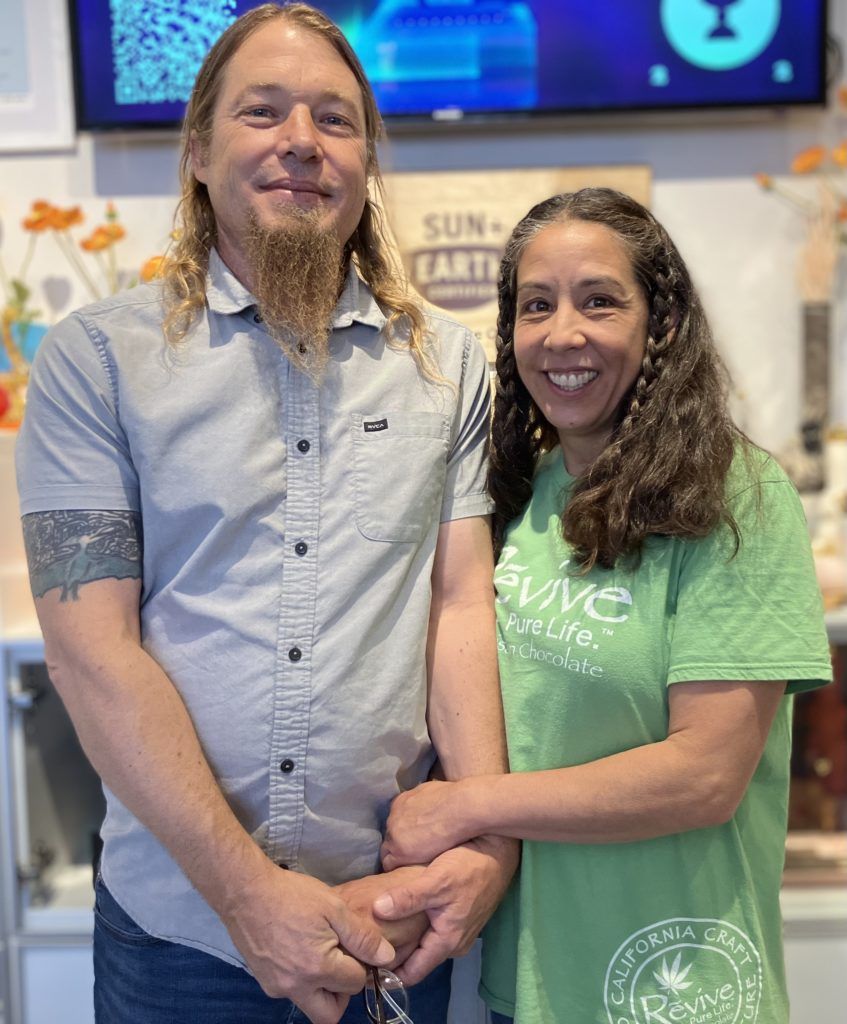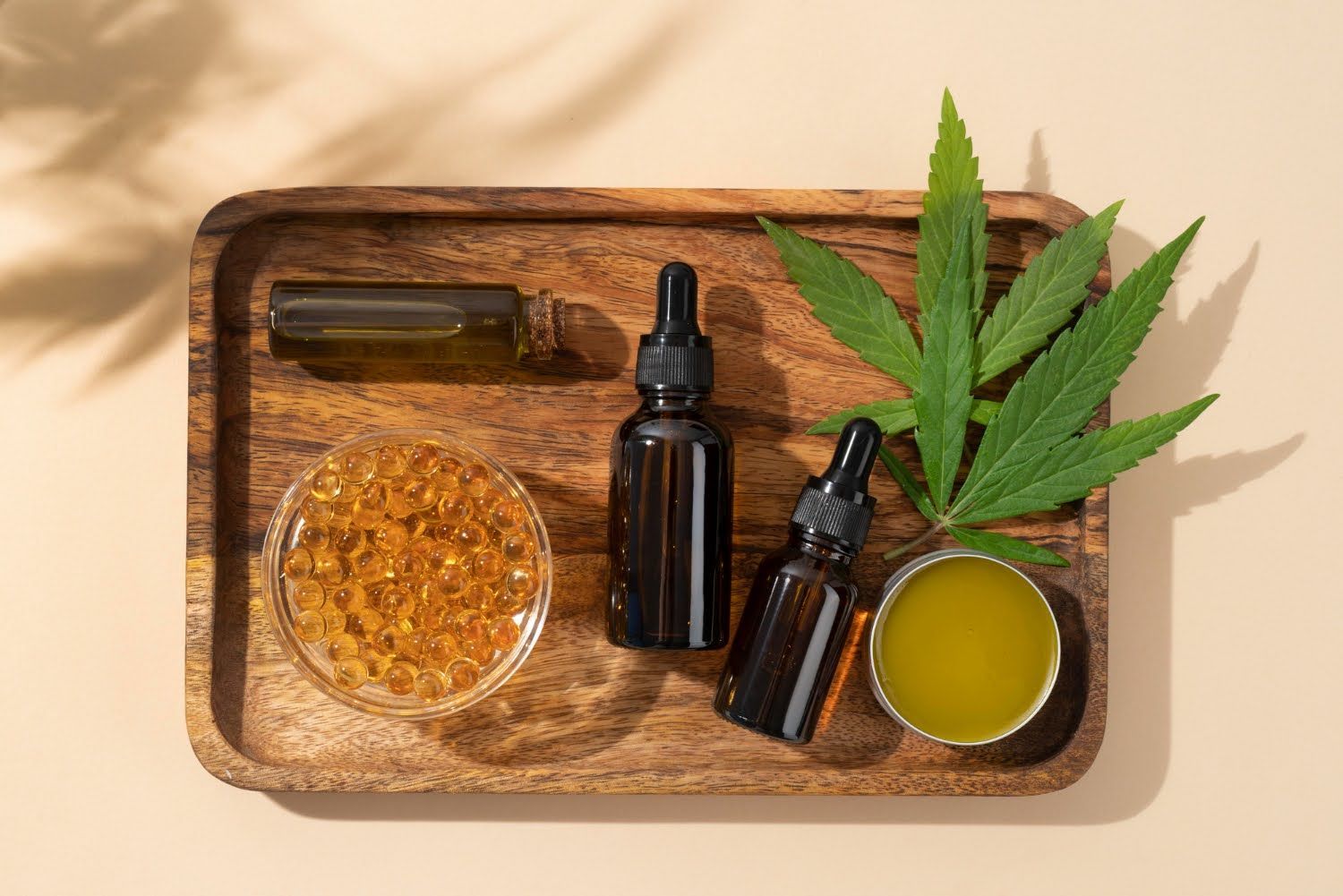The Struggle Is Real: Give Thanks to the Brands That Bring the Dank
This article is part of a series devoted to illuminating the struggles in California’s recreational cannabis industry and the brands that are still standing strong.
Cannabis is California’s number-one cash crop, in the 8
th
-largest economy in the world. So why are so many brands, cultivators, and retailers struggling to make ends meet?
Under the very permissive Compassionate Care Act of 1996, thousands of talented cannabis enthusiasts made a comfortable – and legal – living in the quasi-legal green market. But ever since Prop. 64 created a taxed and regulated recreational market in 2018, the barriers to entry are so high and the regulations so onerous that only a fraction of the cannabis community that built the industry remains. And even the players that can afford the exorbitant taxes and licensing fees required to stay in the game are barely able to eke out a living.
This may come as a shock to consumers who are paying higher prices than ever for retail cannabis. Sure, big money is still changing hands. But whereas that money once went into the pockets of the creators (then directly into the communities they lived in and supported), since Californians voted to “tax and regulate,” that money now goes almost entirely to – you guessed it – the tax collectors and regulators. In just four years, the fabled “green rush” has become the “green struggle” just to survive.
Recently, I sat down with Jennifer de Luna, co-founder and CFO of
, and invited her to share her experience navigating the pitfalls of the regulated industry as a craft edible and extracts brand still struggling to survive despite jumping through every hoop, doing all the things, and having super high-quality products that customers keep coming back for.
Revive, known for its raw, organic dark chocolate bars and solventless extracts, is one of just a few Sun+Earth manufacturing facilities in California. That means they use only organic, fair-trade ingredients, procure exclusively Sun+Earth Certified, sustainably grown cannabis, and process rosin, bubble hash, and sift hash for their Revive Ital Extracts label using solventless extraction methods.
Their flagship product, the rich and luxurious Revive Pure Life Chocolate Bar, is vegan, made using only four organic ingredients, comes in both THC and CBD varieties, and is infused with rosin – not basic trim that goes into most edibles. Even their compostable packaging is designed to minimize their impact on the environment. But despite their sustainable manufacturing practices, the way regulations are forcing them to operate at a deficit isn’t sustainable from a business standpoint at all.

Having to pay a full year of rent before they could even operate while they waited for their license to be approved, coupled with being charged triple rent just because they are a cannabis business, plus having to wait four long years to get social equity status – all that adds up to the owners of Revive
literally not having been paid since 2018.
Let that sink in for a minute. All the money the company makes goes toward licenses, fees, taxes, and operating expenses – which, unlike typical businesses, the federal government doesn’t allow them to write-off.
“The tax authorities make more money on these products than the manufacturers, and that’s the saddest part,” de Luna says.
Even with the minimal reprieve that legislators gave cannabusiness operators when they rolled back a nominal percentage of taxes earlier this year, challenges continue to mount.
In spite of the fact that California for years has been producing far more cannabis than the state can consume, the Department of Cannabis Control continues to dole out licenses, adding to the glut in the recreational market and wildly exacerbating the black market Prop. 64 promised to destroy. In short, these regulations were written by people who have never been in the cannabis industry,
.
Corporate cannabis businesses have substantial financial backing that makes it possible to withstand years of operating at a deficit. By contrast, Revive, being a small, boutique cannabis brand, has been relying entirely on de Luna’s savings from the career she left to fully devote herself to her cannabusiness dreams.
“The culture of cannabis is being crushed,” de Luna said. “Just imagine all the costs we’ve incurred because of licensing and fees and renting two facilities. But the wholesale price of our chocolate bar today is the same as it was prior to regulation. So, how do all those new expenses get paid for? How do all the taxes get paid for? We are fighting for our lives and our livelihood.”
Against such overwhelming odds, anyone still standing in California’s cannabis industry is clearly doing it because it is their very life’s passion. So, despite the deepening struggles and constant setbacks, de Luna says she and co-owner Jacob Carlson have no regrets, and are patiently waiting for more intelligent regulations to emerge while remaining steadfast in their dedication to the plant and their clientele.
“The reason we’re still here is because we eat, breathe, sleep, and believe in this medicine. We believe in this product. We’re not just selling it.”
Run by a woman and a “green warrior” – Carlson is a survivor of the drug war – Revive is passionately devoted to the plant, the environment, and the cannabis consumer above all. This holiday season, thank the brands that make your holiday every year. Thank them with your wallet.
like Revive wherever you find them, this holiday season and all year ‘round.
Shop Small & Support Revive at Doobie Nights:
[joint-dutchie-slider brand="bad585d3-3f0d-46fb-81f4-09a071247808"]
ADDITIONAL RECENT POSTS

By Megan Pursynski
•
February 27, 2026
In a world that rarely slows down, many of us are craving something simple: a chance to exhale. Between constant notifications, packed schedules, and the hum of everyday stress, true relaxation can feel out of reach. That’s why more people are turning to cannabis, not just to “check out,” but to tune in to a calmer, more grounded state of mind. When used intentionally, cannabis has become a trusted companion for mindful unwinding. Whether it’s easing into the evening after work, setting the mood for a restorative night in, or simply creating space to decompress, the plant offers a spectrum of relaxation experiences tailored to individual needs. Interest has especially grown around: Cannabis gummies for relaxation : discreet, precisely dosed options that make winding down simple and predictable Calming strains known for body-soothing, stress-melting effects Terpene-focused products that emphasize aromatic compounds linked to tranquility and mood balance

By Megan Pursynski
•
February 15, 2026
You’ve just wrapped a beautiful day hiking Annadel or sipping Pinot in Sonoma or wandering the farmers’ market, only to have your mind still spinning like fog rolling through the valley. We all know that feeling! That’s where cannabis for meditation steps in, not as some magic fix, but as a thoughtful tool to help you drop deeper into the present. We’re not saying cannabis replaces your meditation cushion (mindfulness is the real boss), but when used thoughtfully, it can be that gentle nudge toward quieter thoughts and bigger awareness. Think of it like adding a dash of local honey to your tea: subtle, natural, and oh-so-Sonoma. Curious how a subtle dose can quiet the noise and amplify the peace? Let’s explore it.







